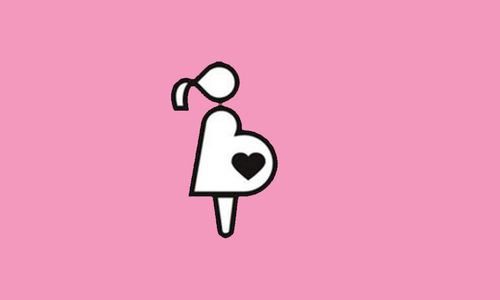As a part of the Pakistani society, we are well aware of the fact that a strange sort of onus befalls an expectant mother of a female child.
If this very expectant mother is ripped off of all the material and immaterial biases that the society has entrenched in her, I can vouch for her neutrality to either gender, unless of course there exists an innate predisposition and preference for either one of them.
Why then, I ask, are many mothers in Pakistan yearning to have a male child? Although the answer beckons a multidimensional analyses of the social structure that we are a part of, I aim at illuminating one of the dimensions, namely, labelling.
Labelling is a problem so deep rooted that it has become a part of the existing norms of the society, distorting realisation of a pragmatic and sane society to seem like an Orwellian unachievable utopian society.
Being the only sister of two brothers, I always yearned for a female sibling. However, yearnings do not always produce results. When I got married and started expecting our first child, insouciant about the social norms, I naively declared to the utter astonishment of kith and kin, that I desired to have a daughter.
For the longest time, it never dawned on me that people around me found my wish to be strange, to say the least.
At the beginning of my second trimester, out of sheer curiosity my husband and I would enquire about the gender of the baby from our gynecologist, every time we went for a routine check-up.
After the ultrasound, the doctor would come up with excuses and evade the answer, most often stating that the baby had turned his/her back towards the ultrasound machine.
During one of those check-ups, I intuitively asked the doctor if she was purposely hiding the gender. This hunch was by then based on numerous concerns people around me had enunciated regarding the gender of the child, which they had hoped was male.
Upon reassuring her that I desired to have a daughter, she breathed a sigh of relief and finally labelled the foetus as a female one. Her hesitance, she said, was based on the society’s inclination towards the male gender.
An inclination so strong, that it could cause parents to experience vasovagal syncope (fainting) if they discovered that the foetus was female. In worst case scenarios, the pregnancy would be terminated or the child abandoned once born.
Examine: Pakistan’s ‘gone girls’
The second time I was pregnant, everyone around me became extremely optimistic and unequivocally confident that the baby to be born was a male child and that I should start praying for him.
Following the dictums of norm, how others’ wants were morphed into my preference for a son is a process not unfamiliar to most of the Pakistani population.
Albeit ambivalent as I was, the constant pressure and tacit affirmatives in vernacular regarding the gender of the baby were eschewed psychologically and internalised unwittingly, insomuch as to bring an inexplicable sense of shock once I discovered that I was bearing a female child. I can recall how I stood on the fulcrum of remorse and apathy.
Finally, better sense prevailed. Also, despondency shoved away after an erudite person (my mother) cited verses from the Holy Quran that explicitly termed even remote dislike for the female gender of an incipient child as evil.
A sense of true emancipation dawned (thankfully) once I broke loose from the strands of engendered societal norms and shouted out that I was proudly expecting a female child!
Alas! The battle was not yet won – I was accused of not ‘praying properly’ to be ‘blessed’ with a baby boy!
Sociological research provides strong evidence for rhetorical impact on the formation of beliefs, attitudes and values. Negative notions prevailing in society ingress into discourse; after all what is in the heart is almost always on the tongue.
Of all the people, if a prospective parent hears the following words from a medical professional e.g. a radiologist, the likelihood of him/her internalising the negative association of words to gender of the foetus is greater than hearing such terms from any other person:
"Hmm… it appears to be a girl, however one can never be too sure, so do not worry. Miracles happen. I have witnessed many in my medical profession. Continue praying."
The most common heartfelt prayers are from complete strangers. I can never forget how once a manicurist asked me how many children I had.
I said, “Mashallah two daughters.” With my answer she seemed to fall into a zone of dystopian regret and her almost spontaneous reply was, “Oh, poor you! May Allah give you a son the next time.”
However, I did not remain reticent to the reaction which was impolite to say the least. I asked her, “Why? Aren’t both genders granted by the will of Allah? Besides what good would a son do to me, that a daughter won’t?”
She retorted, “Well, it is obvious. A son will carry forward the name of the father!”
I counter-questioned, “Wouldn’t a daughter do the same? What if my hypothetical son never married; wouldn’t my husband’s legacy die? Besides, what makes me or my husband so great, that the alleged legacy has to be carried fore?”
She finally gave up on me, and a sense of absolute mirth dawned on me.
In-depth: The missing daughters of Pakistan
I am a proud mother of two daughters, and so is my husband. We have been "blessed, twice," as someone once said to me. And yes, we have laughed off at the concept of primogeniture prevailing in this day and age, where even extant monarchies such as the British have done away with the succession clause of the first-born male child.
The problem of the girl child is a structural one that should be addressed in terms of basic changes in discourse and vernacular, so that biases at all levels can be eliminated and the internalisation of the association of the female gender with burden/onus can be annulled.
And this is only one dimension of the problem that finds presence in all the structures of our society. Female infanticide cannot be tackled unless we address the deeply-entrenched biases against the girl child that have made way into our discourse, and taken over our minds.
Labelling, as a process, is so deep-seated that there is a plethora of evidence and sociological research explaining female primary socialisation as an instrumental factor in influencing what constitutes as feminine and what not.
A change in primary socialisation over the years has also been found to be an agent in changing parents’ attitudes towards female education in most developed western societies, which then encouragingly has reflected into workplace assignments, and back into primary socialisation.
This has also explained the paradigm shift away from female underachievement in popular feminist discourse to accentuating female achievement in workplace.
Researchers Bussey and Bandura indicate that children attempt to match their behaviours to the socially desirable standards set by processes of self-socialisation and social learning.
Also read: No country for girls
Therefore, the impact of labelling must not be underestimated. It is indeed, the biases in our disourse that viciously circulate to lead us into associating terms such as burden, onus etc., with the girl child, in the end sustaining a self-created and self-fulfilling vicious social prophecy of the girl child causing misfortune and encumbrance.
It is interesting to note that most of sociological research analysing the labelling processes use subtle labelling tags e.g. cues of gender labels as (opposed to neutral labels) such as, “See that boy running fast!”.
In our society, one can only imagine the size of the exclamation mark after a fair completion of discourse analysis on gender labelling by the very same researchers.
Analyse the daily discourse in Pakistan, where seemingly inane phrases such as, “Boys carry on their father’s legacy” and “Why study when you are going to end up in the kitchen?”, are staggeringly overused.
By virtue of these, girls not only feel worthless, they also internalise the societal gender constructions and automatically adhere to patriarchal ways of life, later on yearning for male progeny.
Biases against the female gender have been discussed in the Holy Quran and drawing upon the fact that the country that we live in, is in fact, an Islamic Republic, the state and media can easily educate people by drawing references to the verses that expressly shed light on the vices of even remote dislike for a foetus that is female.
As the old adage goes, years of analysis are required for one day of synthesis. Indeed, change in attitudes, values and judgements, along with discourse are the much needed saving grace(s) if the socially perceived and psychologically impactful problem of the girl child is to be mitigated in a systemic way, and women are to be emancipated and empowered, deservedly.
Are you discriminated against due to your gender, religion or ethnicity? Share your experiences with us at blog@dawn.com















































